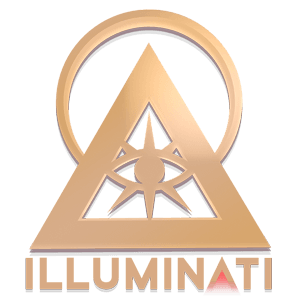The concept of money transcends its primary function as a medium of exchange; it represents a pivotal instrument of power in societal structures. Money serves as both a facilitator of transactions and a means through which individuals and organizations can exert influence. This duality not only defines personal wealth but also shapes the dynamics of authority and control within various cultures and historical contexts.
Historically, the acquisition of wealth has often paved the way for individuals to gain significant political and social power. For example, during ancient Rome, wealthy merchants and landowners could leverage their financial resources to influence political decisions, establish alliances, and secure favorable legislation. This intertwining of wealth and authority illustrates how economic resources can be utilized to assert dominance over governance and societal norms.
The Relationship Between Economic Inequality and Power Dynamics
The correlation between economic inequality and power dynamics within societies is a crucial area of study that reflects the broader implications of wealth distribution on governance and social structures. Economic inequality, characterized by significant disparities in wealth among individuals or groups, often results in the concentration of power in the hands of a few, thereby marginalizing larger segments of the population. This imbalance in power not only affects social cohesion but also influences decision-making processes within political frameworks.
Moreover, the implications of economic inequality extend beyond politics into the realm of social stability. Societies marked by vast wealth gaps tend to experience heightened tensions, as marginalized groups may feel disenfranchised and voiceless. This sentiment can lead to social unrest, as seen in various mass movements that advocate for economic justice and equitable resource distribution. A pertinent example is the Occupy Wall Street movement, which highlighted the plight of the '99%' against the '1%,' igniting discussions about corporate greed and economic disparity.
In conclusion, understanding the relationship between economic inequality and power dynamics is essential for addressing the broader implications of wealth in society. This relationship not only impacts governance and democratic processes but also plays a critical role in shaping social stability and cohesion.
Case Studies: Money and Power in Action
Throughout history, numerous case studies illustrate the significant influence of wealth on power dynamics across various societal structures. One prominent example can be found in the realm of politics, particularly in the United States, where lobbying has become an essential mechanism for corporations to exert influence over legislative processes. The lobbying efforts by organizations such as the National Rifle Association (NRA) and pharmaceutical giants showcase how financial contributions to political campaigns can mold policy outcomes. These entities use their monetary resources to advocate for policies that align with their interests, often resulting in legislation favoring business over public welfare.
Another compelling instance of money affecting authority is in the media landscape. Large corporations often own media outlets, which allows them to control narratives and influence public perception. Consider the influence of technology companies like Google and Facebook; they not only possess wealth but also significant amounts of data on user preferences and behaviors. This capability enables these corporations to shape information dissemination and create platforms that can either uplift or obscure critical issues, thereby impacting public discourse and societal priorities.
Furthermore, the rise of multinational corporations has established scenarios where corporate power rivals that of sovereign governments. An illustrative case is the role of oil companies like ExxonMobil, which possess financial clout powerful enough to sway governmental policies and international agreements related to climate change. Through lobbying efforts and strategic partnerships, these entities can navigate regulatory frameworks to their advantage, often prioritizing profit over environmental considerations.
In these cases, the interplay between money and power demonstrates a complex relationship that significantly shapes decision-making processes and societal outcomes. The influence of wealth often leads to a distorted representation of public interests, raising essential questions about the role of economic resources in democratic governance and cultural discourse. Such case studies underscore the need to critically assess the consequences of wealth on authority and society at large.
The Future of Money and Power: Trends and Predictions
The intersection of money and power is poised for significant transformation in the coming years, driven largely by technological advances and changing societal values. Central to this evolution is the rise of cryptocurrencies, which challenge traditional financial systems and the power dynamics they uphold. Cryptocurrencies, such as Bitcoin and Ethereum, enable peer-to-peer transactions without the need for intermediaries, effectively decentralizing wealth. This shift could create a more equitable distribution of economic power, as individuals gain greater control over their financial resources.
Moreover, the advent of blockchain technology enhances transparency and security in financial transactions, potentially reducing the influence of corrupt practices often associated with conventional banking systems. As this technology matures, it may facilitate the emergence of new economic arrangements, such as decentralized finance (DeFi), which empowers users to access financial services without reliance on established institutions. Such innovations not only democratize financial interactions but also provide an alternative pathway to wealth accumulation, redefining how power is exercised in economic realms.
In addition to technological developments, shifting attitudes towards wealth and equity are crucial to understanding the future of money and power. As global movements increasingly advocate for social justice and economic equity, there is a growing recognition that wealth should be utilized as a tool for uplifting marginalized communities. This change in mindset may lead to more responsible and ethical financial stewardship among affluent individuals and corporations, prioritizing investments that foster societal well-being rather than mere profit maximization.
Ultimately, as we advance, the relationship between wealth and authority will likely evolve in unprecedented ways, spurred by both technological innovation and a collective call for equity. It is imperative that stakeholders engage in responsible practices to harness the potential of these changes for a more balanced and just society.








